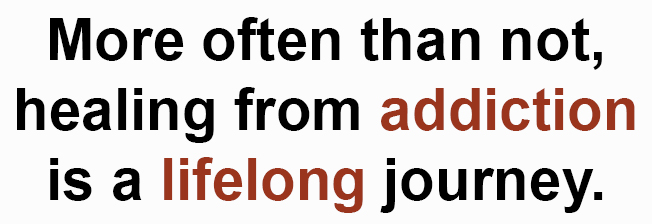Help! My Student is Addicted To …
This is Part 3 in a series on student addiction. I explained how addiction is like idolatry HERE, and yesterday I described several ways to tell whether or not your student is suffering from an addiction.
Now I would like to offer a few tips that may be useful as you help students confront their addictions:
1) NEVER help students detoxify from a “hard” drug without medical supervision. The process of detoxifying from a hard drug or alcohol can cause a person’s system to crash. In fact, detoxifying from an alcohol addiction is more dangerous than detoxifying from many illegal substances. Once the decision is made to detox, go with your student to seek out a detox system that fits his or her individual needs. Some programs may be a week long while others last six months to a year.
2) Giving up an addiction cold turkey isn’t always the answer. Sometimes a student can’t just give up an addiction. Eating, unfortunately, is a basic requirement for survival. So a student struggling with a food addiction faces constant temptation. Developing spiritual disciplines such as Scripture reading, prayer, and meditation on God’s truths and love can replace cravings for a student when he or she is feeling increasing pressure to relapse. Investing in a hobby like painting or flag football can distract from an addiction and give a sense of accomplishment and control (the absence of which may have contributed to the addiction in the first place).
3) You aren’t a therapist. As much as you want to be, you can’t be the only person helping your student toward addiction recovery. Help your student find someone trained to help in his or her fight for freedom. But in the meantime, you can start the process. Many addictions are actually reactions to surrounding circumstances. If a student approaches you confessing that they have relapsed back into the addiction, ask about their week. You may help them discover a pattern between their relapse and their life circumstances. Asking questions will lead your student toward uncovering hidden wounds and allowing God to do his healing work in their lives.
 4) Support systems are crucial. I cannot stress enough the importance of a firm support system surrounding the student (and you as well). By discovering the roots of an addiction, you can bring up tough emotional, physical, and spiritual wounds. The fight for freedom isn’t always an easy one. Remember, we are nobody’s savior. No matter how hard we try, we can’t do it alone. We were created to live in community. Encourage connections between students in your ministry and other leaders. It’s important for us to know that we are not alone.
4) Support systems are crucial. I cannot stress enough the importance of a firm support system surrounding the student (and you as well). By discovering the roots of an addiction, you can bring up tough emotional, physical, and spiritual wounds. The fight for freedom isn’t always an easy one. Remember, we are nobody’s savior. No matter how hard we try, we can’t do it alone. We were created to live in community. Encourage connections between students in your ministry and other leaders. It’s important for us to know that we are not alone.
5) Let grace abound. A key component of a strong community is a grace-filled environment. Addictions are almost always shrouded in shame. Be mindful of this as you broach the topic of an addiction with a student. This is especially evident is sexual addictions. Creating an environment of trust and grace helps a student resist going back into hiding, should a relapse occur.
I have heard miraculous stories of God healing a person from an addiction in a moment. I praise God for those amazing moments of healing. However, more often than not, healing from addiction is a lifelong journey. And great news—our students are at the age where they are developing habits that will influence the rest of their lives. This is both intimating (for a mentor) and awe-inspiring. God has entrusted us to help support and guide these students, so let’s take up our mantles and go prayerfully where he leads us.
About the Author
Guest Contributor
The LeaderTreks Blog is proud to share the hard-earned wisdom of student ministry leaders from many different backgrounds and professions. From time to time, we will feature guest blog posts from writers other than our regular contributors. We include these posts to provide additional perspectives and insight that we’re sure will help develop you and your ministry… Read More




